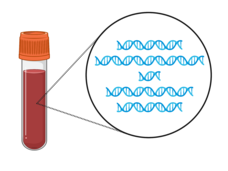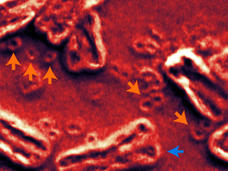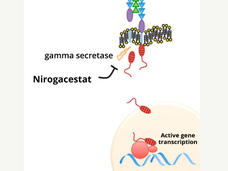May 2023 - Cancer Currents Blog
-
Drug Regimen Boosts Survival of People with Advanced Colorectal Cancer
A new treatment regimen may help improve the survival of some people with advanced colorectal cancer, according to results from an international clinical trial. The new regimen includes bevacizumab (Avastin) and the combination of trifluridine and tipiracil (Lonsurf).
-
Motixafortide May Improve Stem Cell Transplants for People with Multiple Myeloma
In a clinical trial of people with multiple myeloma, giving motixafortide with filgrastim markedly increased the number of stem cells that could be collected. The treatment may allow more people with this cancer to get optimal numbers of stem cells for a transplant.
-
When Prenatal DNA Tests Point to Cancer
An NIH-led study called IDENTIFY is analyzing what happens when prenatal blood tests in a pregnant person suggests the person may have cancer. Dr. Diana Bianchi and Amy Turriff talk about their experience with the study thus far.
-
Can the New “Omics” on the Block Find Liver Cancer in Blood?
Researchers have developed a blood test that, in a preliminary study, accurately detected liver cancer, including in people with early-stage disease. The test uses a new type of technology called fragmentomics to analyze bits of DNA in the blood.
-
Coming Full Circle on Cancer and Extrachromosomal DNA
A new study shows for the first time that a circular form of DNA, called ecDNA, is present in precancerous tissue and not just cancer cells. The study also suggested that when ecDNA is present in Barrett’s esophagus, that tissue is almost certain to become cancer.
-
Rare Melanoma Very Likely to Respond to Treatment with Pembrolizumab
People with desmoplastic melanoma, a rare form of skin cancer, are likely to benefit from treatment with a single immunotherapy drug, pembrolizumab (Keytruda), according to new results from a small clinical trial.
-
Nirogacestat May Offer Hope to People with Desmoid Tumors
In a clinical trial, the drug nirogacestat shrank tumors in 40% of people with desmoid tumors. Treatment with nirogacestat also substantially improved progression-free survival, pain, and physical functioning, compared with patients treated with a placebo.





